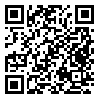Articles accepted at the time of publication
Back to the articles list |
Back to browse issues page
1- Professor of English Education, Ferdowsi University of Mashhad, Mashhad, Iran/Gulf College, Oman
2- Associate Professor of Persian Language Education, Department of Persian Language and Literature, Ferdowsi University of Mashhad, Mashhad, Iran ,shimaebrahimi@um.ac.ir
2- Associate Professor of Persian Language Education, Department of Persian Language and Literature, Ferdowsi University of Mashhad, Mashhad, Iran ,
Abstract: (1248 Views)
Waitance is a cognitive and psychological concept that reflects the tendency to anticipate the occurrence of good or bad events without the need for effort or specific activity in Iranian culture. The aim of this qualitative and applied research is to examine the waitance cultuling in light of the conceptual model of cultuling analysis in Iranian culture. To this end, 435 individuals were asked in April 2024 to express their views on sentences that represent the cultural aspects of waitance through semi-structured interviews. The results showed this cultural aspect is used with high frequency in both public and private formal and informal settings among individuals with informal relationships, by both genders, and more by middle-aged and elderly individuals and individuals from lower and middle social classes. Individuals with tones such as friendly and intimate, hopeful, desperate and hopeless, caring, angry, serious, humorous, and pragmatic use this cultural aspect with goals such as attracting attention, providing hope and comfort, encouraging patience, avoiding responsibility, seeking comfort, advising, referring problems to higher authorities, and so on. This mentioned cultural aspect, with high frequency and positive/negative emotions, indicates patterns of low trust, collectivism, short-term planning, idealism, and high waitance among Iranians. By analyzing these linguistic utterances, individuals can be made aware of the hidden culture within them and take steps toward euculturing and understanding the flawed genes of society.
Article Type: مقالات علمی پژوهشی |
Subject:
Sociology of language
Send email to the article author
| Rights and permissions | |
 |
This work is licensed under a Creative Commons Attribution-NonCommercial 4.0 International License. |






